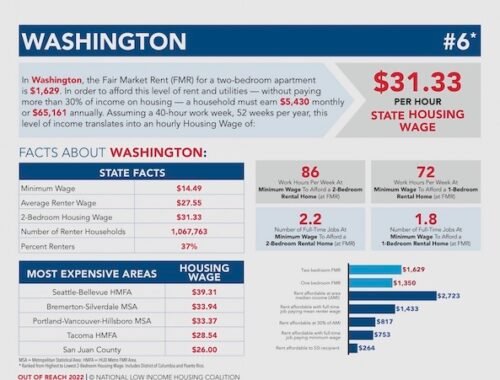
Portland Homeless Crisis Leaking Into Vancouver, Washington?
Today’s video by Living in Vancouver & Camas Washington addresses the issue of the Portland homeless crisis and its impact on Vancouver, Washington. The video has been created in response to popular demand, with the aim of sharing factual information on the topic. If you’re considering moving to the Southwest Washington area or have already made the decision, don’t hesitate to reach out. We would love to hear from you and provide any assistance you may need. Let’s delve into the discussion on the homelessness crisis and its effects on both cities, focusing on lawlessness, drug activity, and the disregard for societal norms. With an emphasis on empathy and understanding, we recognize the importance of addressing these complex issues that affect people’s lives.
Table of Contents
ToggleOverview of the Homeless Crisis in Portland and Vancouver
Background on Portland’s Homeless Crisis
Portland has been experiencing a severe homeless crisis for several years, with a significant increase in homelessness, lawlessness, drug activity, and gang activity since the outbreak of the pandemic. In 2019, approximately 4,000 people were counted as homeless in Portland, but it is widely believed that this number has significantly increased in recent years. Despite spending over a hundred million dollars on addressing the issue, Portland’s homeless crisis continues to worsen.
The Effect of Portland’s Crisis on Vancouver
The homeless crisis in Portland has begun to spill over into Vancouver, Washington, which is located just across the state border. While Vancouver has always had some level of homelessness, the influx of homeless individuals from Portland has exacerbated the situation. Homelessness is most prominent in downtown Vancouver and areas close to freeways. However, compared to Portland, the issue in Vancouver is relatively minor.
Comparing Homelessness in Portland versus Vancouver
While both cities have a homeless problem, the scale and severity of the crisis differ significantly between Portland and Vancouver. Portland has a much larger homeless population, with numbers reaching over 4,000 individuals. In contrast, Vancouver’s homeless population is considerably smaller. The difference in scale can be attributed to various factors, including different policies, resources, and social dynamics in the two cities.
The Role of the Pandemic in Rising Homeless Rates
How the Pandemic Exacerbated Homelessness
The outbreak of the pandemic has had a significant impact on homelessness rates in both Portland and Vancouver. The economic fallout from COVID-19 has caused job losses and financial instability for many individuals and families, leading to housing insecurity and potential homelessness. Additionally, the closure of emergency shelters and reduced access to social services due to health and safety measures have further exacerbated the issue.
Correlation Between Pandemic and Lawlessness
The pandemic’s influence on rising homelessness in Portland has also been closely linked to increased lawlessness. Many individuals facing homelessness have resorted to illegal activities, such as drug use and theft, to survive. The lack of stable housing and adequate support systems has pushed some individuals into a life of lawlessness, resulting in increased crime rates and public safety concerns.
Effect of Pandemic on Residential Areas
The pandemic’s impact on residential areas in both Portland and Vancouver cannot be ignored. As homelessness has spread from commercial areas to residential neighborhoods, homeowners and residents have voiced concerns about safety, property values, and the overall quality of life in their communities. The presence of makeshift homeless camps and the increase in lawlessness have created tensions and challenges for residents and local authorities.
The Portland to Vancouver Shift
Reasons for the Homeless Migration to Vancouver
Several factors have contributed to the migration of homeless individuals from Portland to Vancouver. One reason is the availability of services and resources in Vancouver, which can be more accessible or less crowded than those in Portland. Additionally, Vancouver’s proximity to Portland makes it an attractive alternative for homeless individuals seeking new opportunities or a change of environment.
Implications for Vancouver Residents
The influx of homeless individuals from Portland into Vancouver has raised concerns among local residents. Some fear that the city may experience a similar rise in crime rates and lawlessness as seen in Portland. The presence of homeless camps and the visibility of homelessness in public spaces have impacted the perception of safety and the overall livability of Vancouver neighborhoods.
Identifying Migration Patterns and High-traffic Areas
To effectively address the homeless crisis in Vancouver, it is crucial to identify migration patterns and high-traffic areas. Analyzing data and observing where homeless encampments are concentrated can help local authorities allocate resources more efficiently and implement targeted interventions. Understanding the movement of homeless individuals between cities is essential for developing comprehensive strategies to address the crisis.
Vancouver’s Approach to the Crisis
Municipal Efforts Against Homelessness in Vancouver
The city of Vancouver has been taking proactive steps to address the homeless crisis within its borders. Municipal efforts include initiatives to clean up homeless camps, increase the availability of affordable housing, and improve access to social services. Vancouver’s local government recognizes the importance of collaboration with community organizations, nonprofits, and other stakeholders to tackle the issue effectively.
Community Interventions and Programs
In addition to municipal efforts, community interventions and programs play a significant role in addressing homelessness in Vancouver. Nonprofit organizations and volunteer groups work tirelessly to provide support and resources to homeless individuals and families. Programs such as family shelters, job training, mental health services, and addiction recovery programs aim to address the underlying causes of homelessness and help individuals regain stability.
Policy Differences Between Vancouver and Portland
While both Vancouver and Portland are grappling with homelessness, there are notable policy differences between the two cities. Vancouver has implemented a more comprehensive and collaborative approach, focusing on prevention, affordable housing, and support services. Portland, despite significant investments, faces challenges in effectively combating the crisis. Understanding these policy differences can shed light on the varying outcomes in addressing homelessness.
Personal Experiences and Observations
Real Estate Perspective on the Homeless Crisis
From a real estate perspective, the homeless crisis in Vancouver has had some impact on property values and market dynamics. Potential buyers and investors may have concerns about the spillover effects from Portland’s homeless crisis. However, it is important to note that the impact varies depending on the specific location and neighborhood. Overall, the housing market in Vancouver remains strong and continues to attract new residents.
Experience of Residents and Business Owners in Vancouver
Residents and business owners in Vancouver have had diverse experiences with the homeless crisis. While some individuals have expressed concerns about safety and quality of life, others have found ways to engage with the issue positively. Many community members actively support and volunteer at local organizations that assist the homeless, fostering a sense of compassion and community engagement.
Perceived Safety Amid the Crisis
Despite the challenges posed by the homeless crisis, the overall level of safety in Vancouver remains relatively high. The city has implemented measures to address public safety concerns, and law enforcement agencies work closely with community organizations to maintain a safe environment. It is essential to separate perception from reality and recognize that the majority of homeless individuals are not a threat to public safety.
Success Stories and Positive Developments
Successful Homelessness Alleviation Projects in Vancouver
Vancouver has seen several successful projects that have made a positive impact on homelessness. Initiatives such as modular housing communities, rapid rehousing programs, and supportive housing have provided individuals with stable housing and access to support services. These projects have not only improved the lives of homeless individuals but also reduced the strain on emergency resources and social services.
The Role of Nonprofits in Addressing the Crisis
Nonprofit organizations play a vital role in addressing homelessness in Vancouver. These organizations provide a range of services, including emergency shelters, food banks, medical care, and counseling. They also collaborate with government agencies, businesses, and local communities to create sustainable solutions to homelessness. Nonprofits rely on community support through donations, volunteers, and advocacy to continue their crucial work.
Volunteer Efforts and Community Participation
Volunteer efforts and community participation are crucial in tackling homelessness effectively. Individuals and groups volunteering their time and resources make a significant impact on the lives of homeless individuals. From serving meals at shelters to organizing clothing drives, community members contribute to providing essential services and support to those in need.
The Current State of Homelessness in Vancouver
Latest Homelessness Statistics in Vancouver
Accurate and up-to-date statistics on homelessness in Vancouver are essential for understanding the current state of the crisis. Ongoing data collection helps identify trends, assess the effectiveness of interventions, and allocate resources appropriately. Collaborative efforts between government agencies, nonprofits, and community stakeholders ensure accurate data collection and reporting.
Analysis of Current Conditions and Quality of Life
Analyzing the current conditions and quality of life for the homeless population in Vancouver provides insights into the efficacy of existing programs and interventions. It also highlights areas that require improvement, such as access to healthcare, mental health support, addiction recovery services, and affordable housing options. Regular evaluation and assessment help drive meaningful change.
Emerging Issues and Concerns
Despite efforts to address homelessness, new challenges and concerns continue to emerge. The impacts of the pandemic, economic changes, and social factors influence the homeless population and the resources available to them. Rising housing costs, limited affordable housing options, and the potential for displacement demand ongoing attention and innovative solutions.
Future Projections for Vancouver’s Homeless Population
Potential Impact of Future Economic and Social Changes
Future economic and social changes can have a significant impact on the homeless population in Vancouver. Economic downturns, job losses, and changes in social and welfare policies can contribute to a rise in homelessness. Careful evaluation of potential outcomes and proactive measures can help mitigate negative effects and safeguard vulnerable populations.
Predictions for Changes in Vancouver’s Homeless Demographics
As societal factors evolve, changes in the demographics of Vancouver’s homeless population may occur. This includes shifts in age groups, gender distribution, and the reasons individuals find themselves homeless. Monitoring and studying these demographic changes can guide targeted interventions and resource allocation to effectively address the evolving needs of the homeless community.
Potential Solutions and Strategies for Vancouver’s Homeless Crisis
Addressing the homeless crisis requires a multifaceted approach and long-term strategies. This includes increasing the availability of affordable housing, investing in mental health and addiction treatment programs, providing employment and job training opportunities, and strengthening collaboration between government agencies, nonprofits, and community organizations. By combining these approaches, Vancouver can work towards sustainable solutions.
The Economic Impact of Homelessness on Vancouver
Effects of Homelessness on Property Values
The presence of homelessness can impact property values in certain areas. Homeless encampments and related issues may deter potential homebuyers or investors, leading to decreased property values. However, it is important to consider that property values are influenced by numerous factors, and the impact of homelessness on property values may vary depending on the neighborhood and local market conditions.
Economic Burdens and Benefits of Homeless Programs
Homeless programs, while costly, can also bring economic benefits to the community. These initiatives generate employment opportunities, stimulate local spending, and reduce strain on emergency services and public resources. By investing in effective homeless programs and support systems, Vancouver can leverage the potential economic benefits while mitigating the burdens.
Implications for Local Businesses
The homeless crisis can have implications for local businesses in Vancouver. Some businesses may face challenges due to safety concerns or customers’ perceptions of the area. However, proactive collaboration between business associations, government entities, and community organizations can help address these concerns, support affected businesses, and foster economic growth.
Conclusion
Reflecting on Portland’s effect on Vancouver’s homeless crisis highlights the interconnectedness of regional issues and the need for comprehensive solutions. Vancouver has taken notable steps towards addressing homelessness, but ongoing efforts and collaboration are crucial. Continued awareness, community involvement, and the implementation of sustainable strategies are necessary to improve the state of homelessness in Vancouver. By prioritizing empathy, compassion, and proactive action, Vancouver can make a significant difference in the lives of its homeless population and the overall well-being of the community.
You May Also Like

What is a livable salary in Washington state?
16 January 2024
Comparing the Cost of Living in Seattle and Oregon
13 January 2024


